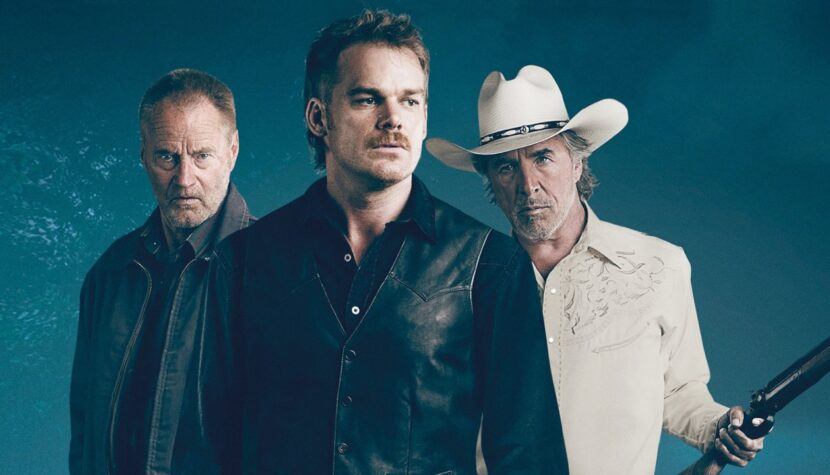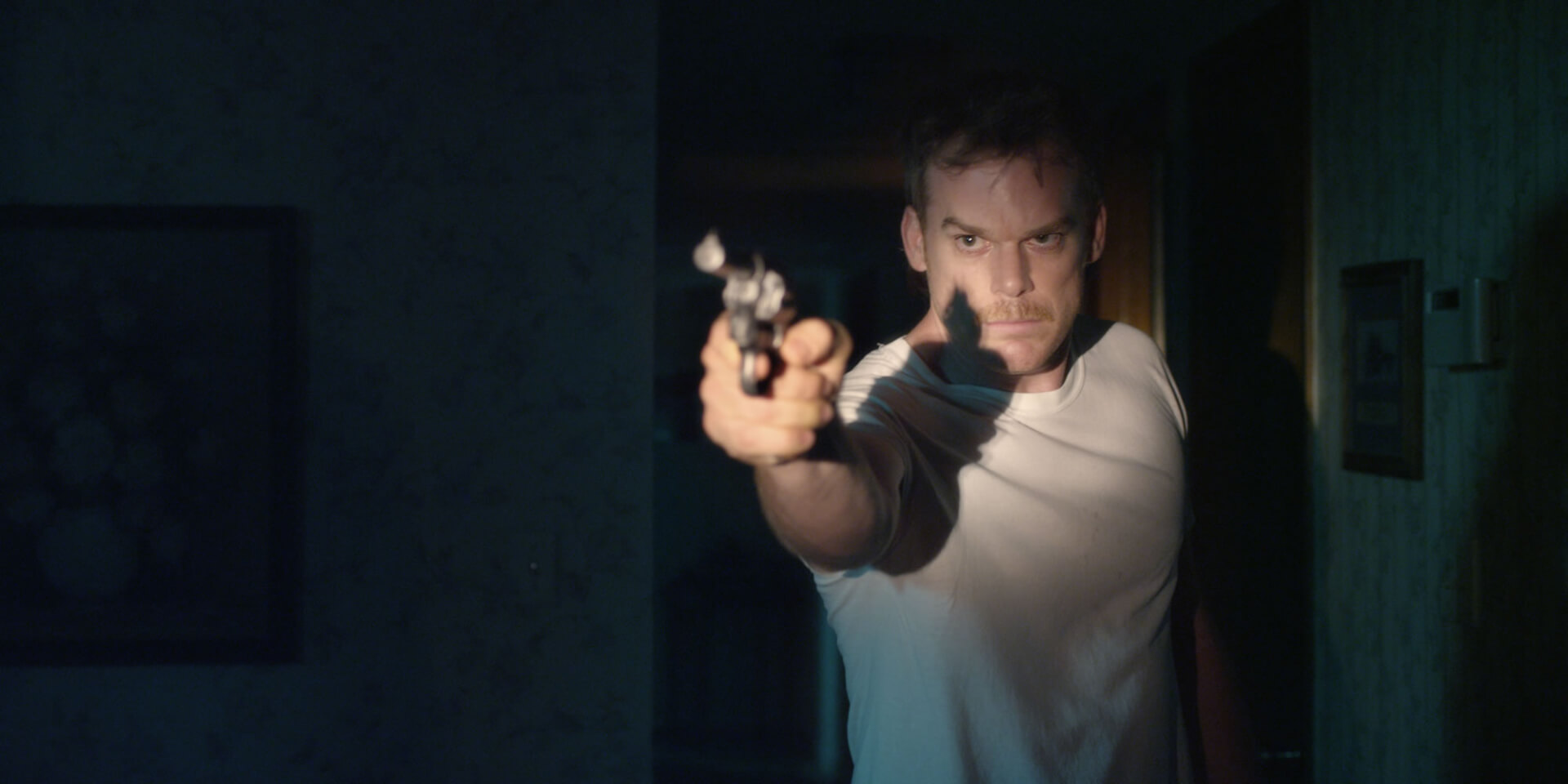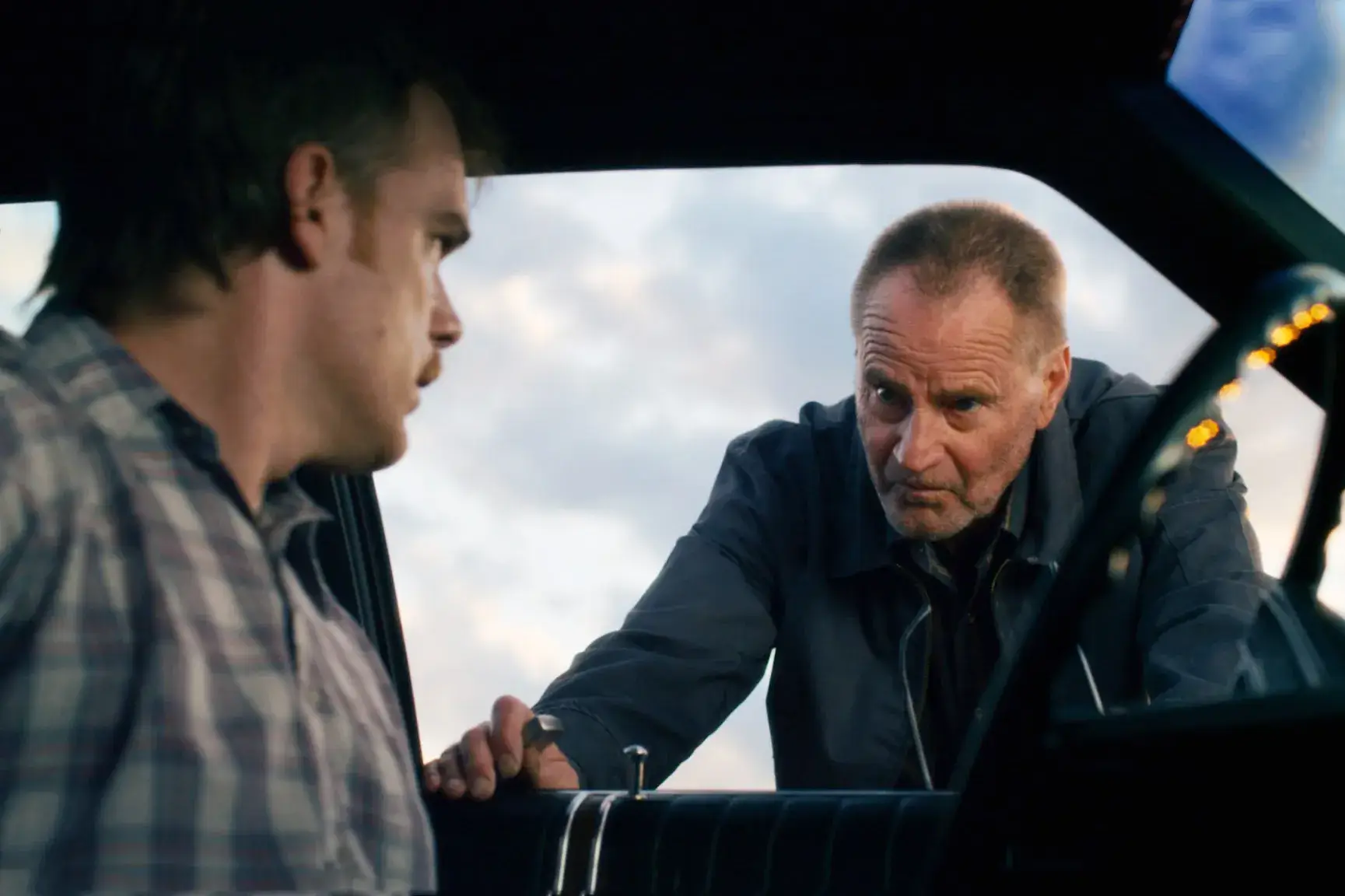COLD IN JULY. Crime thriller that surprises us every 20 minutes

Watching “Cold in July,” one should expect to be surprised, both by the plot and the decisions made by the characters, approximately every 20 minutes. This is both an advantage and a disadvantage of this old-fashioned thriller that evolves into something much more intriguing than initially anticipated.
The film is set in 1989 in a small town in Texas. One night, a straight-laced businessman and family man, Richard Dane, kills a burglar in his home. The police quickly identify the intruder as Freddy Russel, a small-time criminal, and consider Dane’s actions as self-defense. Dane himself is uneasy about the fact that he shot a man, but soon becomes more concerned when Freddy’s father, Ben Russel, is released from prison and arrives in town. Apparently, the ex-convict adheres to the principle of “an eye for an eye,” targeting Dane’s young son.
This is just the beginning of a dark story adapted from Joe R. Lansdale’s book, also released in Poland under the title “Lipcowy mróz” (July Frost). However, labeling it based on the above description as a typical revenge movie would be a mistake. Genre-wise, it is a thriller from start to finish, driven by male honor, even if it transcends human understanding. The decisions made by the main characters in Jim Mickle’s film often defy common sense but serve the theme of “Cold in July,” transforming it from a simple sensational story into a grim morality tale. Watching the finale, it’s hard to believe how this story began.

We see the world through Dane’s eyes, and initially, everything is black and white – the bad guy is the killed thief and his father, while the good guys are the police. Swift resolution of formalities doesn’t raise suspicions because the protagonist had the right to shoot the intruder, and he exercised that right. However, this image undergoes a reassessment when the sheriff handling the case stops answering Dane’s calls, noticing some inconsistencies. Dane himself witnesses law enforcement attempting to kill an unarmed man. While Ben Russel may have wanted revenge on Dane’s family, the upright Dane can understand him; after all, he killed Russel’s son. However, he cannot comprehend the actions of the police.
The characters in Mickle’s film can be divided into those who act according to their conscience and those who don’t. Although conscience might be an exaggeration – it mainly refers to a code, a set of values that distinguish the good from the bad. Protecting one’s family fits into this scope, as does revenge for the killing of a firstborn. Therefore, Dane’s decision to save Russel from an inevitable and, more importantly, unjust death is not surprising. Both are fathers and represent the same way of thinking; perhaps Dane to a lesser extent, but when the final shots are fired, there won’t be much difference between him and Russel. And although they stand on opposite sides of the barricade, in “Cold in July,” these positions tend to change.
There is also Jim Bob Luke, a private detective and Ben’s friend. In Don Johnson’s interpretation, he is a likable Southerner who allows himself to be carefree, unlike the other characters. But he also believes in principles that stand higher than the letter of the law. Johnson appears only halfway through the film and immediately steals the show from the surprisingly ordinary Michael C. Hall (Dane) and the tough but worn-out Sam Shepard (Russel). The entire trio is excellent, fitting perfectly into the style of male cinema, without exaggeration or caricature.

Where are the ladies in all of this, one might ask? Well, there are practically none in Mickle’s film. Dane’s wife seems more determined than him, probably why she doesn’t tell him about her little investigation; she would likely dissuade him and scold him additionally. The other women are either insignificant background or victims. Neither Russel nor Jim Bob have women. Why? It probably wasn’t the focus. We hear about Freddy’s mother, so we can assume it was the same with other partners. Jim Bob, especially, doesn’t look like a monogamist. But perhaps the reason lies in the code these men adhere to. The director doesn’t explain this, although it would be in line with the characters – more often rogues than heroes, living by their own rules.
Is Mickle idealizing or criticizing the male concept of honor? Probably the former, although he points out that such pride comes at the highest cost. And it’s not about death, as it is too unpredictable to mean anything beyond the final end. The cost, or rather the victim, becomes one’s own beliefs, that code that, on one hand, commands Ben Russel to avenge his son’s death and, on the other, to administer justice to those who deserve it the most. Therefore, instead of satisfaction, the ending brings a considerable amount of bitterness. The director slightly modifies the ending compared to the book, but the question he poses is the same – why any rules if they bring pain and contempt for oneself instead of peace?
This gloomy reflection fits more into Cormac McCarthy’s prose than Lansdale’s pulp, who prefers plot twists over questions about human (male) nature. Perhaps that’s why individual elements make a greater impression than the whole – for most of the film, it’s just a skillful thriller, only to shape into something more ambitious in the end. However, the creators do provide an answer to the question posed above. Any rules are better than none. Such a statement may not necessarily bring comfort, but in the July frost, no one can afford greater optimism.

